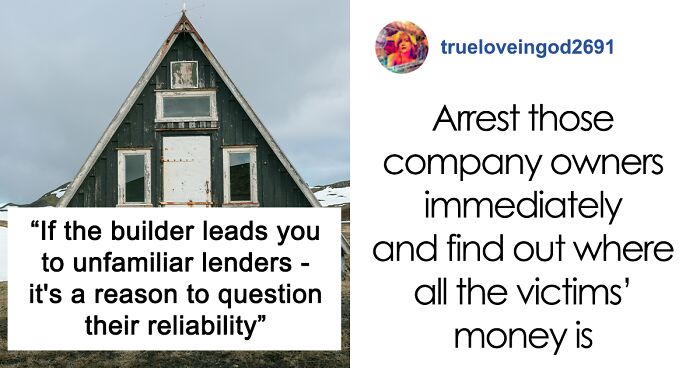
People Get Caught In Whopping $15M “Tiny Home” Scam, Are Warning Everyone To Watch Out Too
Almost twenty years ago, Jay Shafer popularized the idea of living in tiny homes as a whole culture, but today the demand for accessory dwelling units (ADUs) is also due to the high cost of “stationary” housing. So it is not surprising that more and more Americans are interested in tiny homes and other ADUs.
And as the market grows, so does fraud. For example, several dozen Californians who recently wanted to acquire their much-coveted tiny homes fell victim to their own gullibility, allowing the developer to collect a shocking amount of credit from them—and in return, built nothing. Absolutely nothing.
More info: ABC 10 News
When aspiring to obtain a new house, even a tiny home, one should be incredibly cautious while picking the developer
Image credits: Andrea Piacquadio / Pexels (not the actual photo)
The San Diego State University business professor along with several dozen other folks from California recently fell victim to alleged tiny-home fraud
The story we have for you today was first investigated by journalists from Team 10 on ABC News in San Diego. The team got in touch with Victoria Krivogorsky, a San Diego State University business professor who wanted to provide herself with a cozy and beautiful house after retiring. The professor was inspired by an impressive presentation by the company Multitaskr and took out a loan to build an ADU.
Moreover, she borrowed loans from three lenders at once—but time passed, and the site where her future tiny home was supposed to be built remained just a bushy wasteland. Meanwhile, the time came to pay off the loan and, as you probably already figured out, no one was even planning to build a house. It turned out that there were several dozen clients like Victoria, and in total the company took $15M from them.
Image credits: Multitaskr / YouTube
The consumers borrowed loans from multiple lenders and had to pay them all off, with no homes having been built
It also turns out that the company’s landing page is no longer available online, and its CEO and founder, Jose Frausto, doesn’t answer calls or emails—neither he nor his numerous employees. The investigative team discovered that after complaints from defrauded clients, the Contractors State License Board revoked Multitaskr’s license in October last year.
Image credits: wirestock / Freepik (not the actual photo)
Now this “developer’s” former clients are planning to sue them, but in the meantime, they have to pay off the lenders so as not to damage their credit history. Professor Krivogorsky, for example, took $100K from her retirement fund for the project. We can only hope that the lenders will cancel the loans, given the current situation.
Image credits: Ketut Subiyanto / Pexels (not the actual photo)
There are in fact a few methods to check whether your probable developing company is trustworthy
As we can see, even a PhD in business is no guarantee that a flashy promo and catchy numbers shown in commercials will not lead you into a problematic situation with unscrupulous developers. Sometimes, advertising tricks prevail over cold reason, and we do what we want—not what we should—passing off wishful thinking as reality.
In fact, there are not many key factors when investing in new real estate, just three: transparency, choice of lender, and control over funds. And what does this mean in particular?
1. Transparency—No matter how stylish and catchy the pitch decks are, there should always be clear roadmaps on project timelines, cost spending, and construction details. Ideally, everything should be written down on paper and recorded in a contract signed by both parties. No “gentlemanly verbal agreements,” and no vague speeches!
2. Choice of lender—If you are offered a loan by multiple lenders, or strongly recommended to an unfamiliar company, think twice. Better yet—thrice, and even better—refuse right off the bat. As a last resort, contact banks that you trust and with which you have a long history of working together.
3. Control over funds—Remember we said that all building milestones should be recorded in a contract? Well, in a perfect situation, funds for building a house should be kept in a separate escrow account, and issued to the developer only after confirmation of having passed these milestones. If the developer wants everything at once, it’s really worth considering…
As noted, the success of ads—for example, by this dedicated post on the Impulse Digital blog—is largely determined by the pain points to which the commercial actually appeals. And in an era when affordable housing is becoming a serious problem, it’s truly a pain point. So, the most important thing is not to let yourself be tricked into possible fraud, and always keep a cool head. And do you, our readers, agree with this viewpoint?
People in the comments agreed that no one should actually pay cash upfront and it’s a heavy must for anyone building a home
Alot' of confusion here on the price tag. The going price to build here in San Diego is $200-$400/sq-ft. Just to put it into perspective a small single car garage is about 250 sq-ft. The other issue is how many contractors are unscrupulous and shady. Lets say about half of contractors are dishonest and will cheat you.
Here's an idea for you. Don't buy anything at a "presentation". They just took a page out of the timeshare playbook. The harder someone harps on out how awesome an opportunity is, the tighter your wallet should be.
Alot' of confusion here on the price tag. The going price to build here in San Diego is $200-$400/sq-ft. Just to put it into perspective a small single car garage is about 250 sq-ft. The other issue is how many contractors are unscrupulous and shady. Lets say about half of contractors are dishonest and will cheat you.
Here's an idea for you. Don't buy anything at a "presentation". They just took a page out of the timeshare playbook. The harder someone harps on out how awesome an opportunity is, the tighter your wallet should be.

 Dark Mode
Dark Mode 

 No fees, cancel anytime
No fees, cancel anytime 







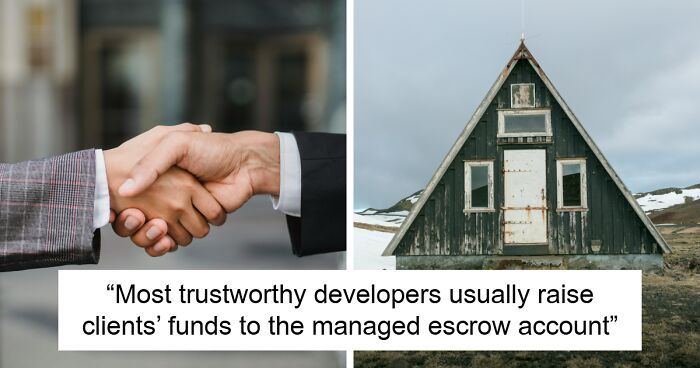




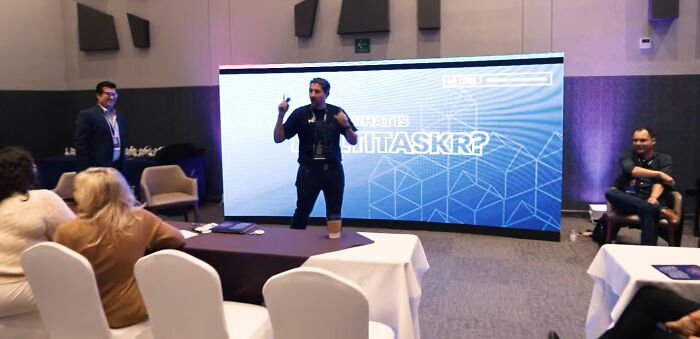


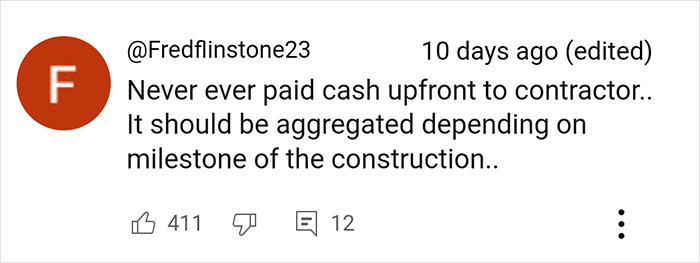
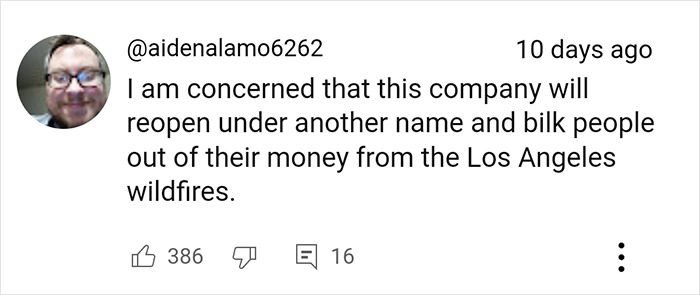


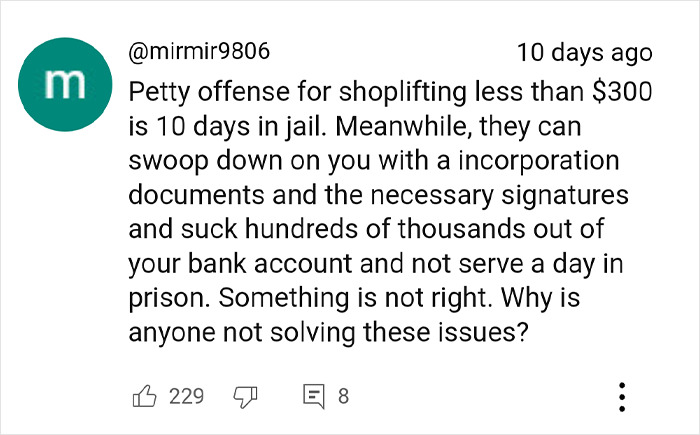


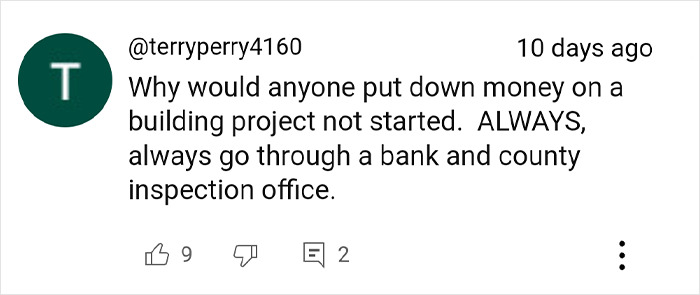
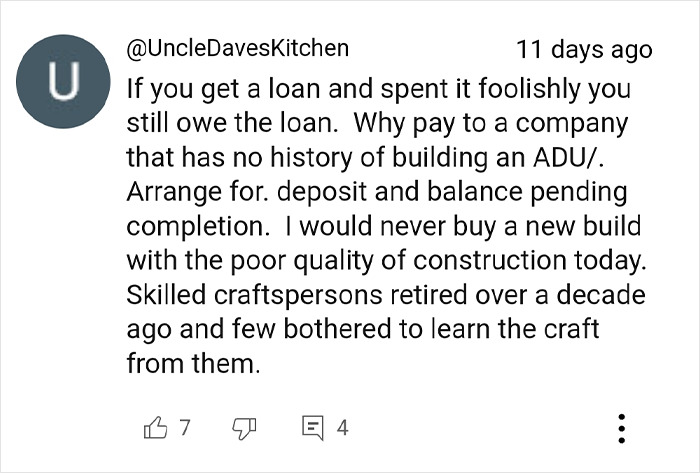



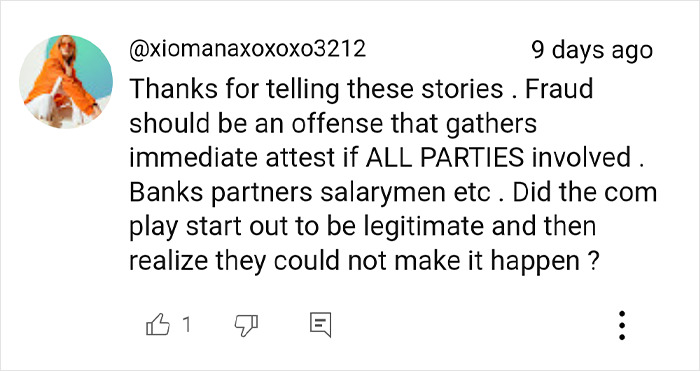







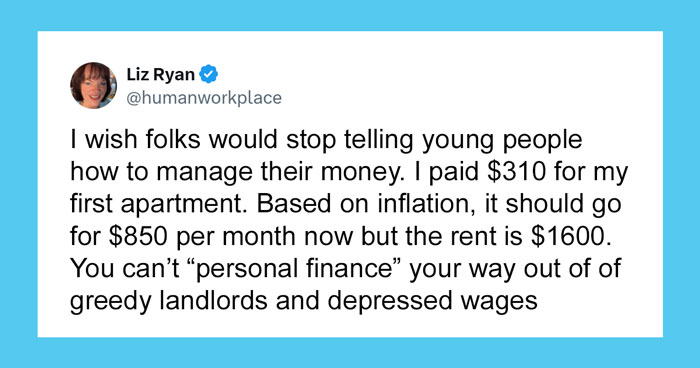







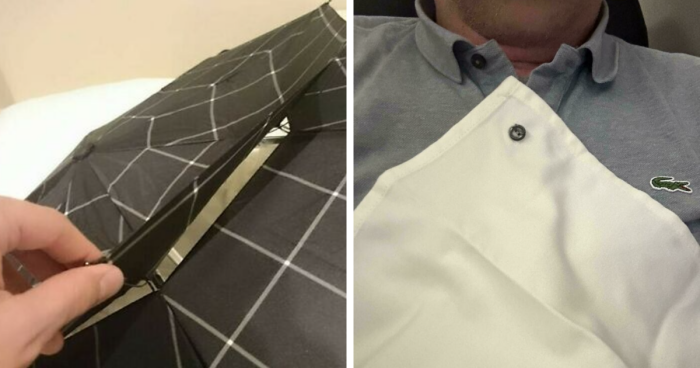

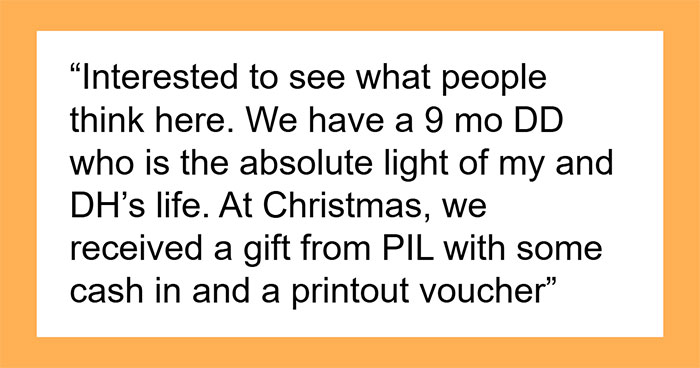


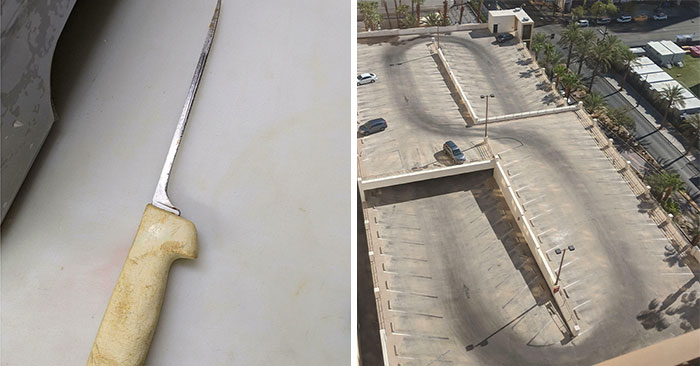

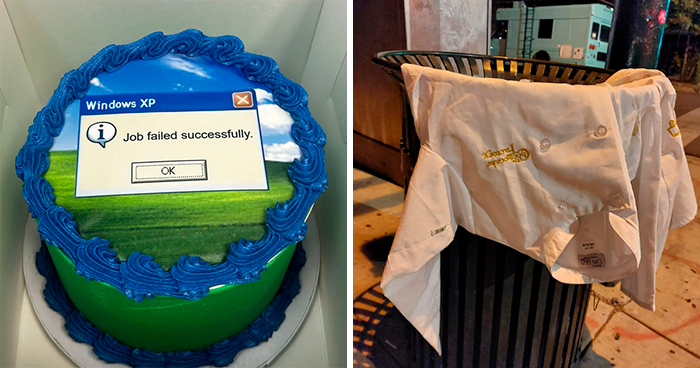

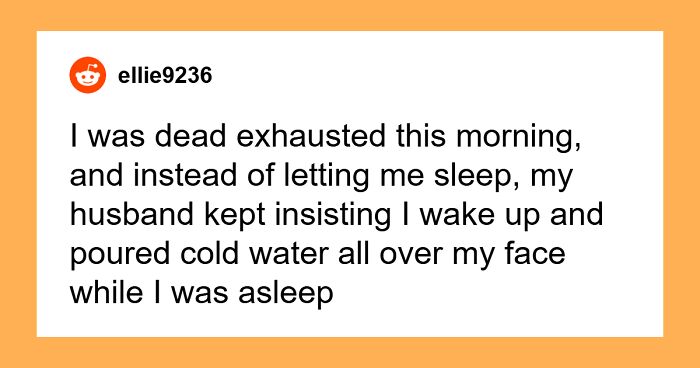

30
2